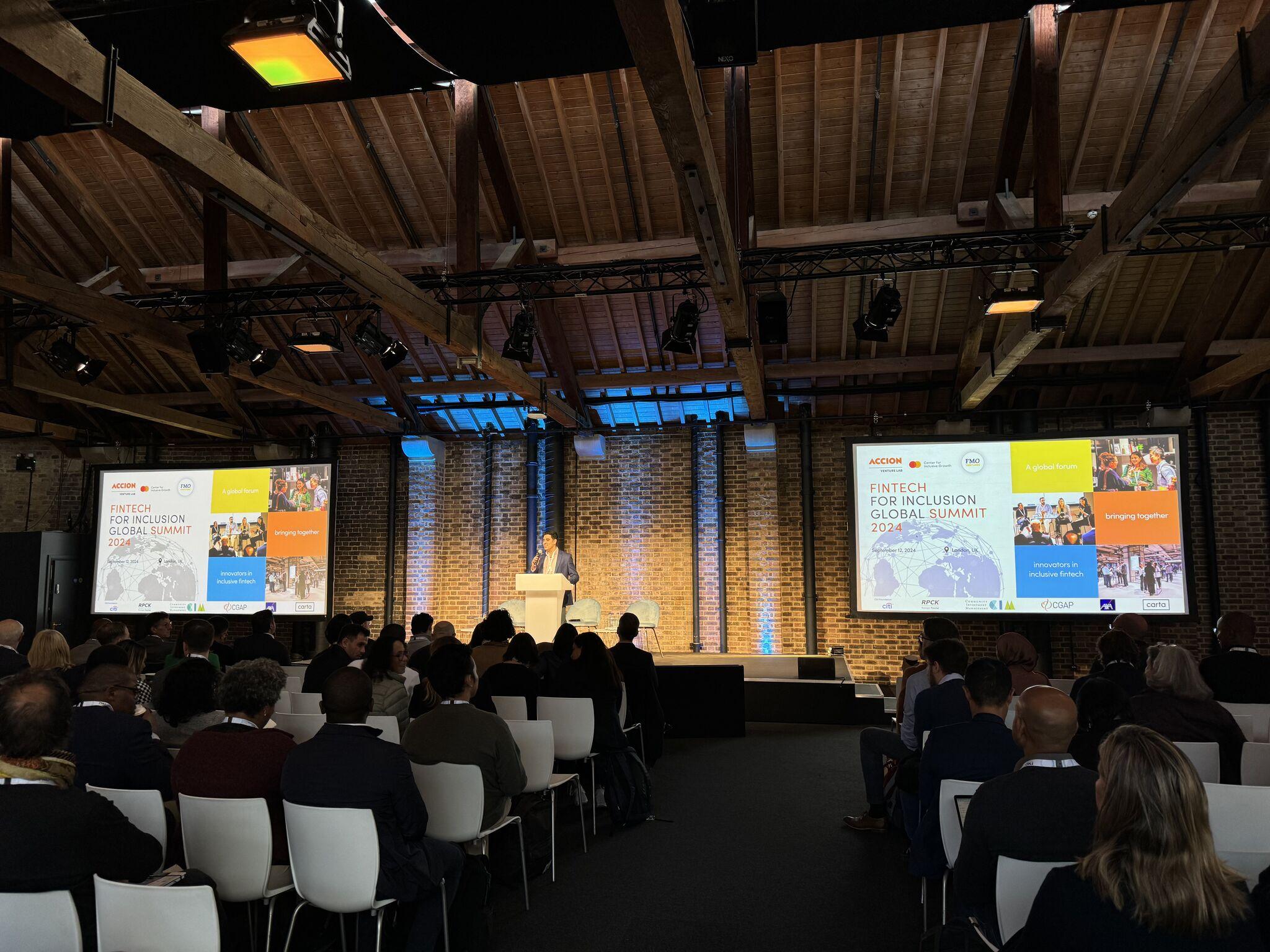How inclusive fintech is shaping international development.
By Christoph Sieker, Investment Associate
Sep 20, 2024
Representatives from the global inclusive fintech community recently gathered in London for the Fintech for Inclusion Global Summit (FIGS24). Hosted by Accion Venture Lab in partnership with Mastercard Center for Inclusive Growth and FMO, the event brought together over 270 founders, investors and practitioners in inclusive fintech who are making an impactful change on a global level. The attendees joined engaging workshops, fireside chats, and panel discussions to discuss industry trends, share knowledge and network. These are my four key insights from the conference:
1. Embedded Finance: Everyone does it. Everywhere.
Embedded finance is the seamless integration of digital banking, along with other financial products and services, into non-financial companies’ platforms or applications. It enables these non-banking businesses to offer their customers – and additional stakeholders, such as suppliers, partners and employees – a wide range of financial services, including lending, insurance and payments, without having to build the underlying financial infrastructure themselves.
Non-fintech companies in developing countries have started to include embedded finance in their offers, and the summit discussed the opportunities and challenges this presents. On the one hand, embedded finance has become a core revenue stream and an enabler of strong growth and scale for many start-ups. On the other hand, start-ups need to balance scaling their businesses with healthy financials and have to significantly invest in partnerships with, for example, microfinance institutions to transition from on-balance sheet to off-balance sheet financing.
2. The role of AI in incremental operational improvements.
It seems that everyone is talking about AI at the moment. Stakeholders at the summit discussed if and how start-ups in developing countries have been able to leverage AI to date and identified two main pathways:
First, AI helps start-ups to be significantly more efficient, both in the immediate fintech context, for example in credit application processes, as well as in the broader context of digital applications, for instance in the automation of data analysis and resulting product recommendations. Secondly, AI has the power to strengthen customer engagement significantly, including leveraging chatbots for personalised communication.
It’s important here to consider the local contexts to achieve higher customer acceptance towards new technology. One of GIF’s most recent investees, AI-powered soil carbon marketplace Boomitra, recognises that many smallholder farmers in target countries prefer verbal over written communication. Accordingly, the start-up developed a voice-based AI chatbot to improve its reach.
3. An interest in blockchain - but not necessarily in crypto
The response to blockchain technology has been mixed. This was also true at the Summit, with development finance institutions (DFIs) traditionally more conservative in their investment approaches compared to venture capital funds.
In general, investment appetite depends strongly on the specific use case for blockchain technology. Across the board, investors are rather sceptical towards cryptocurrency solutions in the face of continued pressure from central banks and governments, as has been seen recently in Nigeria, for example. However, non-currency blockchain solutions, for instance in the context of land ownership rights, are viewed as complementary to traditional legal and market-guiding frameworks, and are thus exciting investment cases.
4. Securing funding remains a challenge for all.
Fintech investors in developing countries, just as in other sectors, are facing challenges in raising capital due to the global economic climate. Whilst it was once common to double the size of subsequent funds, many investors are now struggling to maintain their capital.
Consequently, both start-up valuations and the volume of investments have declined, making it more difficult for start-ups in developing countries to finance their growth journey successfully. In response, start-ups are increasingly exploring debt financing as a means to scale, something in which GIF’s new growth investment vehicle hopes to support them.
